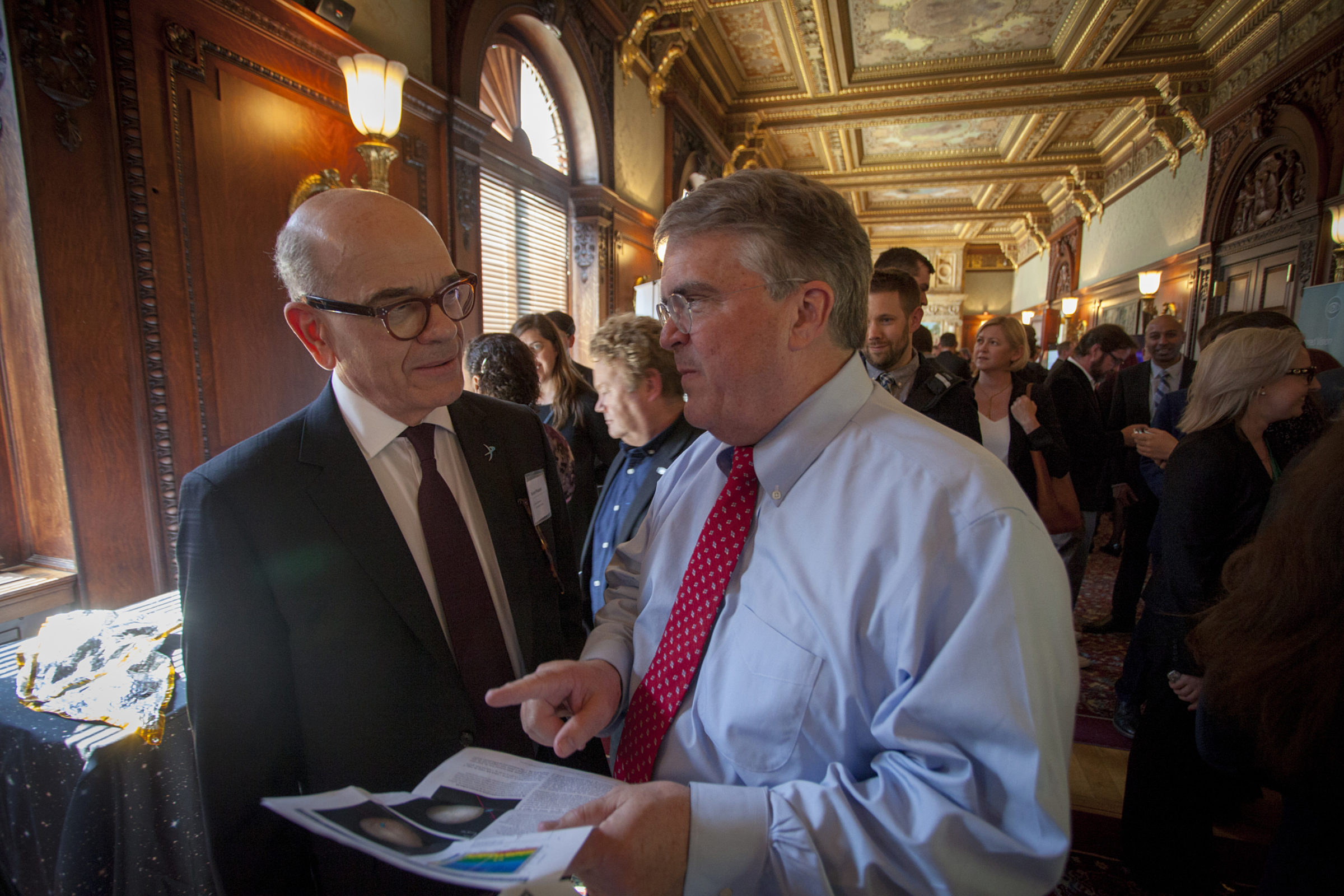Casey Dreier • Nov 15, 2018
When Space Science Becomes a Political Liability
Representative John Culberson, an 8-term Texas Republican and staunch supporter of NASA and planetary exploration, lost his re-election bid to Democrat Lizzie Fletcher last week. Many factors played into this outcome, but one bears consideration by space advocates: his support for the scientific search for life at Europa was seen as a weakness and attacked accordingly.
Over the past four years, Culberson used his chairmanship of the Commerce, Justice, Science (CJS) appropriations subcommittee to increase spending on NASA and missions to search for life on Europa. He directed hundreds of millions of dollars to this effort and played a critical role in getting the Europa Clipper mission officially adopted by NASA and the White House. And he did this without cannibalizing other NASA programs. His motivation was passion, not parochialism, as the prime benefactor of these federal dollars was California's Jet Propulsion Laboratory, located far outside his Houston-area congressional district.

Culberson's unusual and commendable commitment to the scientific exploration of space ended up as a political liability, as opponents painted the congressman as out of touch with his district.
The first salvo came from the Houston Chronicle, which endorsed his opponent Lizzie Fletcher, and had this to say about Culberson's support for the Europa missions:
His career has been spent promoting his own pet projects rather than serving the local needs of his home district. That's why it took the greatest natural disaster in Houston history to compel him to act with necessary passion.
It's not that Culberson doesn't care about water. He does. But most of the time, he seems to care a bit more about the water on Europa, an icy moon orbiting Jupiter, than he does the water in the Addicks and Barker dams. Or in our bayous. Or in our homes. Culberson has expended untold political capital trying to force NASA to send probes to Europa in search of alien life. That's an admirable scientific mission, even if some planetary researchers think the limited resources could be better spent.
The editors at the Chronicle ignore the fact that Europa was repeatedly declared one of the top priorities by the National Academies of Sciences in the decadal survey reports. They misrepresented a single scientist's dissent as proof of broad scientific division, and suggested that Culberson was unable to support Europa (a relatively minor program within the $56 billion jurisdiction of the CJS subcommittee) while addressing local issues. Europa's remoteness and extraordinary promise of discovery served as a handy literary device—the false dichotomy of choosing water on some distant moon versus addressing flood waters here.
The editorial was distilled into an attack ad by the Independence USA PAC, a pro-Democratic political action committee which, to be clear, is unaffiliated with the Lizzie Fletcher campaign. The ad ignored the scientific caveats from the Chronicle editorial board and went full-on anti-space:
The ad, as you can see, dredges up dismissive tropes used to caricature space science and exploration advocates: cartoonish aliens, "Jetsons"-style futurism, and false dichotomies of space versus "real" issues.
Make no mistake, this ad is anti-science. This dismissal of a scientifically valid area of study—one that could potentially reshape entire fields of science—should be roundly rejected by any citizen committed to a modern scientific society, regardless of political affiliation.
The point here is not to draw conclusions about Republicans versus Democrats, or whether Culberson deserved to be reelected by his district. Nor is it to say that this ad was the primary factor as to why Culberson lost his seat. The point is that supporting space science was seen as a liability—something to be exploited instead of commended—and it was used to diminish and embarrass the candidate for having the nerve to embrace far-reaching scientific goals. No doubt this lesson will be internalized by other politicians: space science and exploration should be pursued quietly and apologetically, an extravagance to be indulged only after "real" issues are addressed.
It is likely that the individuals who made this ad did not think about these implications, nor do they consider themselves anti-science. But the message they sent was clear: to anyone who dares to dream about exploration and discovery, to anyone who finds their soul stirred by the thought of discovering life beyond Earth, to anyone who finds the courage to take the cosmic perspective—you do not belong here, and you do not deserve to have access to power. And in that sense, we as a nation, as a polity, and as a species, are diminished.
A new congress convenes next year. There will be many new faces, including Lizzie Fletcher, that have yet to understand the awesome scientific potential of planetary exploration. The political implications from this election are a setback, but they are not permanent. It's up to us as Planetary Society members and supporters to ensure the new Congress learns that an ancient ocean on a distant moon has value—and is worth their support—in addition to issues here on Earth.
The Time is Now.
As a Planetary Defender, you’re part of our mission to decrease the risk of Earth being hit by an asteroid or comet.
Donate Today

 Explore Worlds
Explore Worlds Find Life
Find Life Defend Earth
Defend Earth

